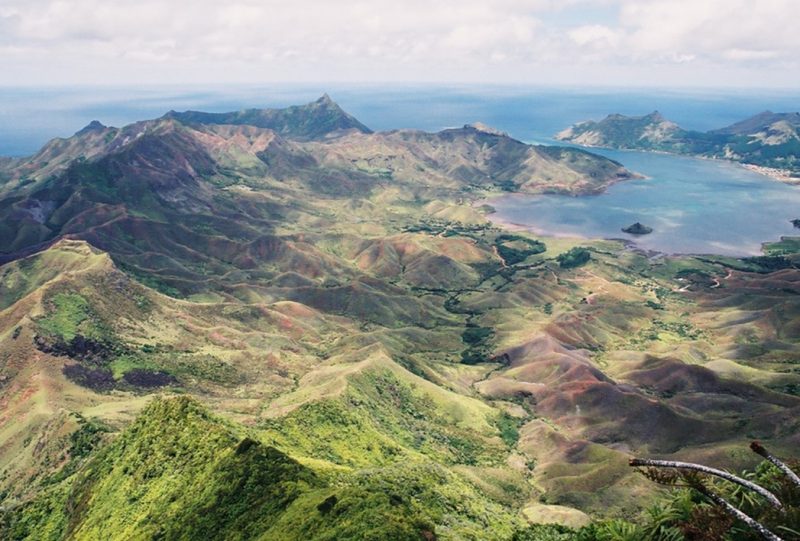
Life on Earth has limped through five mass extinction events From an asteroid impact to huge volcanic eruptions, no humans were involved. But many scientists now believe we’re in the midst of a 6th mass extinction. And, this time, they point to our widespread human presence on Earth as the reason. This month (January 14, 2022), a team of scientists announced a new comprehensive study of Earth’s biodiversity, which supports the idea of an ongoing, human-caused 6th mass extinction. The new study includes invertebrates, a category of life often disregarded as an indicator of the health of our planet’s biodiversity. As lead author Robert Cowie of the University of Hawaii at Manoa said:
Including invertebrates was key to confirming that we are indeed witnessing the onset of the 6th mass extinction in Earth’s history.
The team of biologists from the University of Hawaii at Manoa and the French National Museum of Natural History published their study in the peer-reviewed journal Biological Reviews on January 10, 2022.
The 2022 lunar calendars are here. Order yours before they’re gone!
Defining a mass extinction
While much evidence points to the fact that we’re undergoing a biodiversity crisis, many scientists stop short at describing it as the 6th mass extinction. Some scientists deny that we’re in the 6th mass extinction using the IUCN Red List, which is the International Union for Conservation of Nature’s Red List of Threatened Species. It’s the world’s most comprehensive information source on the global conservation status of animal, fungi and plant species.
But as the scientists said in their paper:
The Red List is heavily biased: almost all birds and mammals but only a minute fraction of invertebrates have been evaluated against conservation criteria. Incorporating estimates of the true number of invertebrate extinctions leads to the conclusion that the rate vastly exceeds the background rate and that we may indeed be witnessing the start of the 6th mass extinction.
When invertebrates are included, the scientists estimate that since 1500 CE, Earth has already lost some 150,000 to 260,000 species of invertebrates.
Cowie elaborated:
Drastically increased rates of species extinctions and declining abundances of many animal and plant populations are well documented, yet some deny that these phenomena amount to mass extinction. This denial is based on a highly biased assessment of the crisis which focuses on mammals and birds and ignores invertebrates, which of course constitute the great majority of biodiversity.
Island species hardest hit
The crisis reveals itself most clearly when analyzing extinction rates on islands. On places such as the Hawaiian islands and French Polynesia, the loss of species is more dramatic. For example, 2,000 bird species went extinct on the Pacific islands after human colonization began a few thousand years ago. That equals almost 1/6 of the current worldwide bird fauna.
The scientists say that invertebrates such as land snails are highly diverse and narrowly endemic; that is, they are a species that have a very small habitat, such as one island or one area of one island. On Rurutu, an island of French Polynesia, 19 species of mollusk once lived there. Despite extensive searches in the native vegetation that remains, scientists could only find empty shells. All 19 species are now listed as extinct.

Humans as part of natural causes
The scientists in the study lament the fact that the denialism of science that is becoming prolific in modern society extends to the denial of the 6th mass extinction. Indeed, some people even argue that the extinctions are just a new and natural evolutionary trajectory, albeit one that is created by only one species on Earth. But as the scientists said in the paper:
We are not […] just another species going about its business in the greater evolutionary scheme of things, an argument that gives carte blanche to those who would destroy the Earth for their own short-term gain.
Cowie argued:
Humans are the only species capable of manipulating the biosphere on a large scale. We are not just another species evolving in the face of external influences. In contrast, we are the only species that has conscious choice regarding our future and that of Earth’s biodiversity.
He went on to say:
Despite the rhetoric about the gravity of the crisis, and although remedial solutions exist and are brought to the attention of decision-makers, it is clear that political will is lacking. Denying the crisis, accepting it without reacting, or even encouraging it, constitutes an abrogation of humanity’s common responsibility and paves the way for Earth to continue on its sad trajectory toward the 6th mass extinction.
They note that charismatic animals spur the conservation movement. While land snails or mollusks may not have the cuddly panache of a baby polar bear, the scientists hope that people can cultivate a wonder for all nature and to document its biodiversity before it disappears.
Bottom line: By including invertebrates in their study and not just mammals and birds, scientists say Earth is currently undergoing a 6th mass extinction.
Source: The 6th mass extinction: fact, fiction or speculation?











